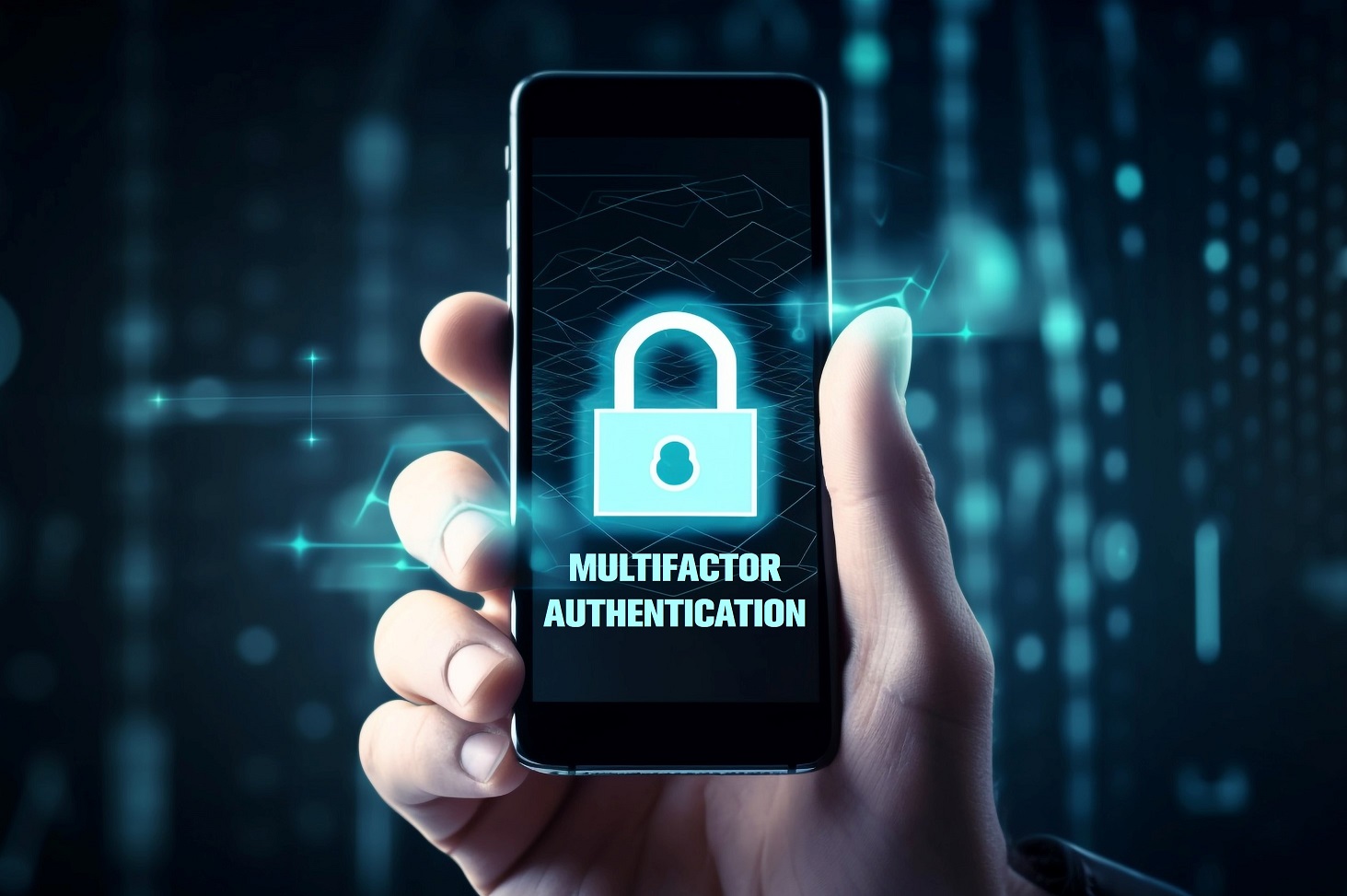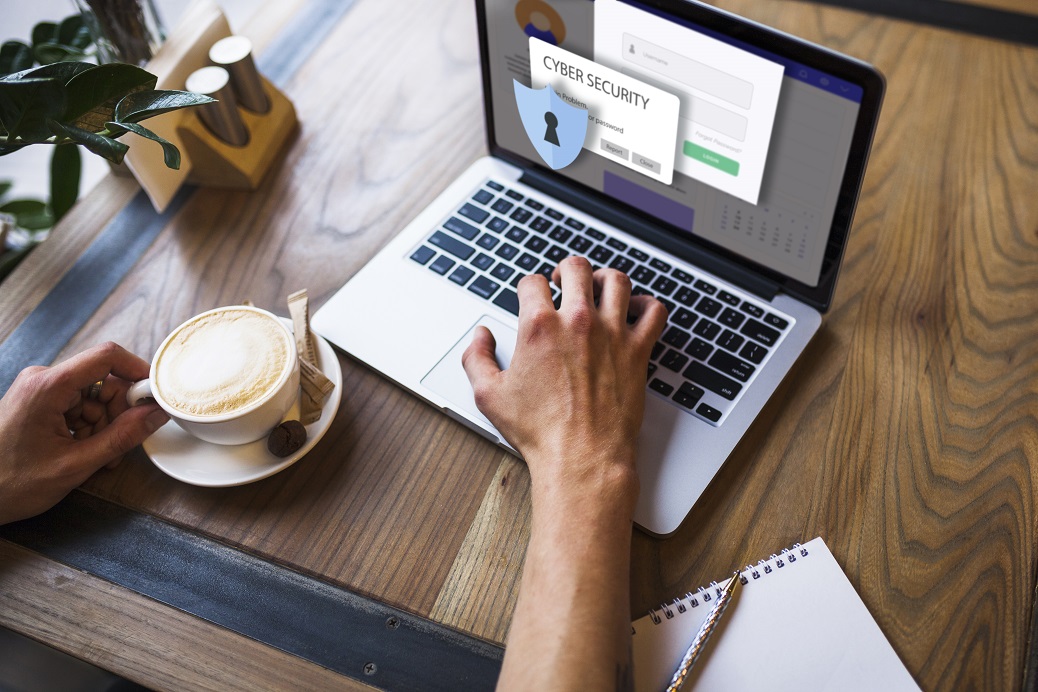Fortifying Your Digital Defence: The Importance of Multi-Factor Authentication

Protecting Your Business
As cyber threats continue to evolve, so do an organisation’s security measures. Multi-Factor Authentication (MFA) has quickly become a staple for businesses in keeping their employees and assets safe. With ransomware incidents and vulnerabilities being exploited, MFA is an essential part of a cyber security toolkit.
What is Multi-Factor Authentication, and Why is it Essential?
Multi-Factor Authentication protects against unauthorized access by requiring users to provide multiple forms of verification. This typically involves something you know (password), something you have (a mobile device or security token), and something you are (biometric data like fingerprints or facial recognition).
Some business owners might be sceptical of subscribing to MFA for their business, especially if they are small to medium-sized enterprises. Maybe their operations might not be as digitally integrated as a multinational corporation, or they feel that their threat landscape is not as large. There is no immediate need for precaution, and additional security measures are non-essential.
The opposite, however, also holds true – and prevention is always better than cure. Cybercriminals employ increasingly sophisticated methods, such as phishing and brute force attacks, to exploit vulnerabilities. Simple passwords and platform exploits are some of the most common ways that attackers can access an organisation’s user endpoints and deploy ransomware. Once compromised, a single set of login credentials can open the door to a cascade of security breaches, potentially leading to identity theft, financial loss, and unauthorized access to sensitive data. Users are often unaware of an attack taking place until the damage is already done.
We’ve compiled a list of reasons highlighting the importance of MFA for organisations, and why it’s a key component of a business’s cyber security.
1. Passwords Alone Are Not Enough
MFA addresses the shortcomings of passwords by introducing additional layers of security. Even if a password is compromised, an intruder would still need a secondary form of authentication, making unauthorized access significantly more challenging.
2. Protection Across Various Attack Vectors
MFA guards against a spectrum of cyber threats, including phishing attacks. Even if a user inadvertently divulges their password through a phishing scam, the absence of the second authentication factor prevents unauthorized entry.
3. Safeguarding Sensitive Data
For businesses and individuals alike, protecting sensitive information is paramount. MFA adds an extra dimension of security, ensuring that only authorized individuals can access critical data, financial accounts, and confidential documents.
4. Compliance with Security Standards
As digital landscapes become more regulated, compliance with security standards is not just a good practice but a legal requirement in many industries. MFA aligns with these standards, providing a robust security framework that enhances organizational resilience.
5. User-Friendly Authentication
Contrary to common misconceptions, implementing MFA need not be cumbersome for users. With advancements in technology, authentication methods like biometrics and push notifications on mobile devices offer a seamless and user-friendly experience.

MFA Options for Enterprises
Business owners and IT stakeholders can arrange for a multitude of MFA options to safeguard their organization. Some examples of implementation are as follows:
- Two-Factor Authentication (2FA):
This is the most common form of MFA, requiring users to produce at least 2 types of authentications. For example, entering a password (something you know) and receiving a temporary code on your phone (something you have).
- Three-Factor Authentication (3FA) or More:
Some high-security environments or applications might require three or more factors for authentication. This could involve a combination of passwords, physical tokens, and biometric verification.
- Adaptive Authentication:
Adaptive authentication is a more sophisticated approach that dynamically adjusts the level of required authentication based on various factors, such as the user's location, device, or behaviour. For instance, if a user attempts to log in from an unfamiliar location, the system might prompt for an additional authentication factor.
- Time-Based One-Time Passwords (TOTP):
This involves generating a temporary code that changes over time. Users typically have a limited window to input the code before it expires. TOTP is often used in conjunction with mobile apps or hardware tokens.
- Risk-Based Authentication:
This approach assesses the risk associated with a login attempt. If the system detects a potentially risky login, it may prompt for additional authentication steps. Conversely, if the login is deemed low risk, it might require fewer authentication factors.
In summary, multi-factor authentication offers a versatile set of options to enhance digital security, and the effectiveness of an MFA system often lies in combining factors intelligently to create a robust defence against unauthorized access.
The Future of Digital Security: A Collaborative Effort
In an era where cyber security threats are constantly evolving, adopting advanced security measures is essential. Multi-Factor Authentication stands out as a powerful tool in the fight against unauthorized access and data breaches. By providing heightened security, mitigating password vulnerabilities, offering adaptability and convenience, ensuring regulatory compliance, reducing the risk of unauthorized access, and protecting against phishing attacks, MFA emerges as a crucial component of a robust cyber security strategy. As organizations and individuals continue to prioritize data security, the widespread adoption of multi-factor authentication is not just a recommendation—it's a necessity.
Adventus Managed Cyber Security Solutions and Multi-Factor Authentication
Multi-Factor Authentication is an important consideration for any business. Adventus is a certified provider of cyber security solutions with a dedicated SOC centre. We also provide managed 2FA and MFA solutions tailored to your business. Leave the details to us and let us help you with how we can protect your interests, employees, and data. Contact us to find out more!
Recent Posts
- Tycoon 2FA: The Menacing MFA-Bypassing Phishing Threat Targeting Microsoft 365 and Gmail Accounts
- Fortinet Users Beware: New RCE Vulnerabilities Disclosed
- Ivanti Exploited: Third Zero-Day Vulnerability Uncovered (CVE-2024-21893)
- TeamViewer Exploited to Breach Vulnerable Networks and Deploy Ransomware
- Fortifying Your Digital Defence: The Importance of Multi-Factor Authentication
- IT Outsourcing in Singapore
- New Phishing Method Discovered in Recent Cyber Attacks | Don’t Get Hooked!
- 5 Advantages of Using Managed Backup Services
- What Is IP Telephony, and How Can It Help Your Business?
- Embracing 24/7 Efficiency: Simplify Your Business with Future-Proof Cloud Print Solutions
- Cyber Security Alert! Critical Vulnerabilities Found on Microsoft’s Outlook, Windows and Other Products
- 7 Factors to Consider When Outsourcing IT Support
- A Complete Guide to Door Access Control Systems
- Top 9 Password-Creating Tips That Will Change Your Life | Password Security
- Business Broadband, Fibre, and You: A Complete Guide
- Cloud PBX System: The Benefits of Using a Cloud Phone System for Business Communication
- Top 5 Benefits and Best Practices of Outsourcing IT Helpdesk Support
- Reducing Risks of Computer Virus Attacks in Hybrid Work Environments
- 3 Ways Your Company Can Benefit from Business Broadband
- Cyber Security Threat: “Follina Vulnerability” Explained
- IP Phones vs. Analogue Phones
- On-site IT Support Services vs Remote IT Support Services
- 5 Questions to Ask Yourself Before Creating A Ransomware Recovery Plan
- What To Look For When Choosing A Business Broadband
- 10 Great Tips for Selecting a Good Cyber Security Company
- Cyber Security Threat: “Log4Shell Vulnerability” Explained
- What Is IT Support and What Does an IT Support Specialist Actually Do?
- Tips for Selecting a Good Door Access Control System
- Top 7 Reasons to Use Cloud Managed Backup Services
- Best Outsource IT Support Services And Practices 2021
- A Complete Guide to Managed Cyber Security Services
- Top 5 Financial Benefits of Managed IT Services
- The Different Types of Ransomware
- Ransomware Recovery in Singapore
- How To Get Cost-Efficient 24x7 IT Support in Singapore
- Buying vs. Leasing vs. Renting A Copier / Printer in Singapore
- 7 Cyber Security Predictions for 2021
- Cyber Security Threats in 2020


